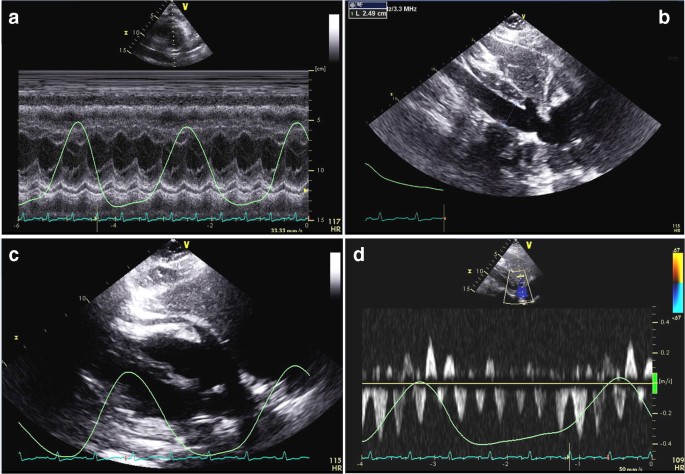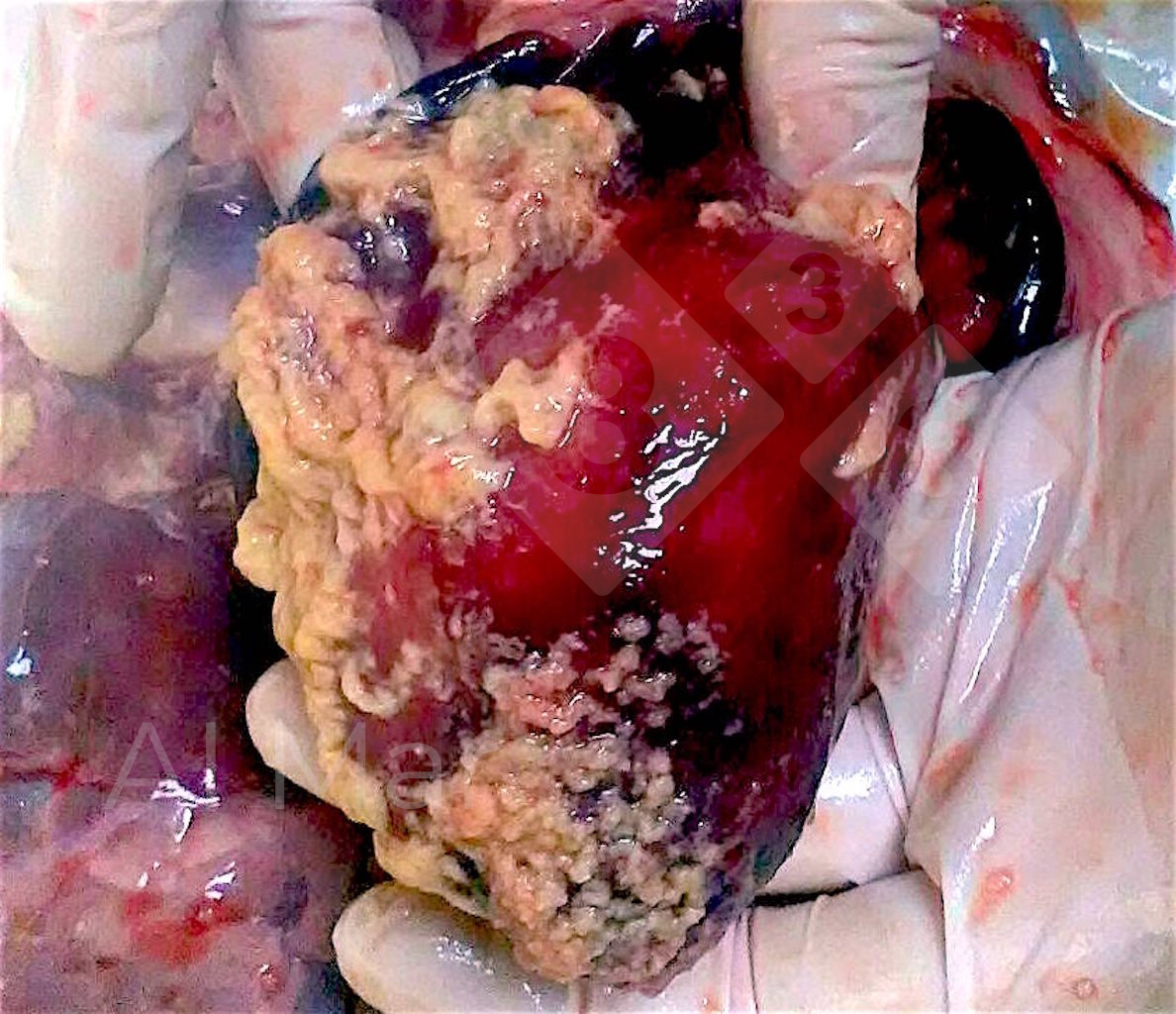Pericarditis:
- Pericarditis simply refers to inflammation of pericardium- outer layer of heart.
- It may be acute or chronic in nature.
- Pericarditis may be traumatic, fibrinous, effusive or adhesive depending on nature of inflammation.
- Traumatic pericarditis is widely prevalent in cattle due to higher incidence of ingestion of foreign objects in grass or straw.

Types of pericarditis:
- Traumatic pericarditis:
- It occurs most commonly in cattle
- It is caused by trauma to pericardium due to perforation of pericardial sac due to ingestion of foreign material
- This type of pericarditis is also recorded in horse and lamb, but are uncommon.
- Effusive pericarditis:
- It is common form of acquired cardiovascular disease in dogs, uncommon in cattle and rare in cats.
- It is characterized by accumulation of protein rich fluid within pericardial sac.

- Fibrinous pericarditis:
- In this type of pericarditis, fluid is replaced by fibrin. In chronic inflammatory process, fibrin starts to deposit around pericardium resulting in fibrinous pericarditis.
- It is also known as adhesive pericarditis.
- Parietal and visceral surface of pericardial sac gets adhesive.
